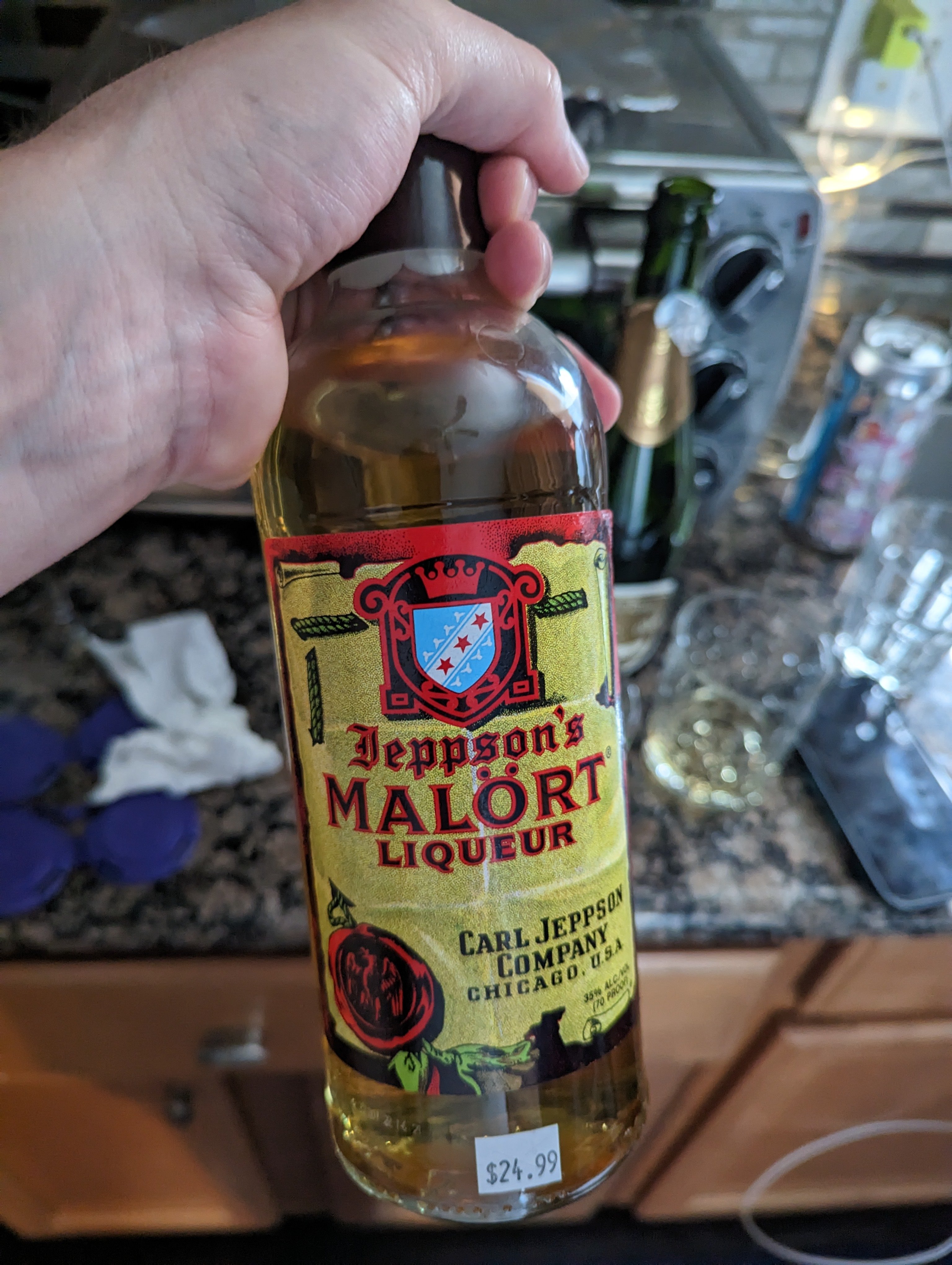I’m ditching streaming services and just going with local music. However all my CDs are converted to either flac or 320kbps mp3 files on my PC and thus far too large for the limited storage I have on my phone.
I was hoping there might be an app that would automatically downconvert to something like 128kbps and then copy over to the Music directory on my phone. A bit like how Calibre can automatically convert eBook files (e.g. mobi to epub) and then send them to your ereader?
I’m in a similar boat to you. I ripped almost all of my CDs to 320kbps mp3s for portability, but then I wanted to put all of them (a substantial number) plus a bunch more (my partner’s collection) on a physically tiny USB stick (that I already had) to just leave plugged into our car stereo’s spare port. I had to shrink the files somehow to make them all fit, so I used ffmpeg and a little bash file logic to keep the files as mp3s, but reduce the bitrate.
128kbps mp3 is passable for most music, which is why the commercial industry focused on it in the early days. However, if your music has much “dirty” sound in it, like loud drums and cymbals or overdriven electric guitars, 128kbps tends to alias them somewhat and make them sound weird. If you stick to mp3 I’d recommend at least 160kbps, or better, 192kbps. If you can use variable bit rate, that can be even better.
Of course, even 320kbps mp3 isn’t going to satisfy audiophiles, but it sounds like you just want to have all your music with you at all times as a better alternative to radio, and your storage space is limited, similar to me.
As regards transcoding, you may run into some aliasing issues if you try to switch from one codec to another without also dropping a considerable amount of detail. But unless I’ve misunderstood how most lossy audio compression works, taking an mp3 from a higher to a lower bitrate isn’t transcoding, and should give you the same result as encoding the original lossless source at the lower bitrate. Psychoacoustic models split a sound source into thousands of tiny component sounds, and keep only the top X “most important” components. If you later reduce that to the top Y most important components by reducing the bitrate (while using the same codec), shouldn’t that be the same as just taking the top Y most important components from the original, full group?
For lower bitrates, I’d suggest using a different codec than MP3. Opus is really solid, and at 128 kbps it will probably get you quality similar to MP3 at 192 kbps. Or you could go lower, and 96 kbps with Opus will be similar to MP3 at 128 kbps. I don’t know an app that will do it automatically, but the CLI tools are really simple to use: you point them at the FLAC and tell it the target bitrate and that’s it.
Alternatively, if you have access to a macOS machine, their AAC encoder is really good and likely superior to any MP3 encoder at equivalent bitrates.
This, @Thorned_Rose@sh.itjust.works.
I’m an audio engineer and can confirm that if you want the best quality audio for the file size, you want Opus. Opus at 128kbps is considered transparent, so it’s roughly as good as 320kbps MP3s, but y’know, less than half the size.
Hey! Good to know about the 128 kbps threshold.
What’s your take on MP3 bitrates? I’ve read some posts online claiming that 320 kbps is overkill most of, if not all of, the time. They claimed that there is little to no gain going above around 220 kbps. In your experience, is there any truth to this?
Generally this is true, but it depends on the encoder used. Back during the huge boom of MP3 popularity in the late 90s and early 00s, it likely did make a difference, so if you’re looking at MP3s that were encoded back then I would go for 320kbps every time just to be safe, but modern encoders generally do much better like you said.
These days if I were encoding an MP3 I’d use LAME at -V0 setting, letting it lower the bitrate where it can without sacrificing quality. That said, per this test from 2014 that I found as a source on Wikipedia, a 96kbps VBR Opus file is at least as good if not better than an MP3 with -V 5 as the setting on LAME with approximately a 135kbps bitrate.
Thanks a lot!
This might be a bit overkill for what you want but you could try using a selfhosted music server like navidrome and streaming to your phone. I use symfonium on on phone which can be configured to request the streamed music to be transcoded to a smaller size for streaming from mobile network or for caching it on your phones storage for offline listening.
Given that symfonium supports a lot of self hosted media providers from which to pull, you could also try sharing your music locally using samba. I’m not sure if the transcoding still works in that case though (it would obviously have to be done on your phone)
“Downsizing” an mp3 is what we call transcoding, and it’s bad. An mp3 (or the better ogg vorbis) works (basically) by discarding parts of the audio that you won’t hear. Doing that will discard parts of the mp3 that already has a bunch of parts discarded and this makes it sound bad.
I do something like what you’re looking for, but it’s all through a bunch of custom scripts and crap that I made. I buy flac, encode that to ogg (which sounds better than mp3s at lower bitrates), those oggs get synced to my phone, then later I organize those oggs to my collection.
I think you’ll have to either accept these large mp3s or start a lossless collection.
Well, it’s not great to take an already compressed audiostream like 320kbps mp3, and then compress it again. Use your FLACs if possible. Then, I’d recommend that you use .ogg - they give better compression (smaller files), but with better sound than mp3…
There’s a lot of apps out there, but AFAIK not anyone who does this automatically for you.
128kbps mp3s are terrible
You are correct and I don’t normally like to listen to anything less than 320kbps. BUT, my phone does not have expandable memory so it’s hard limited. And where I listen to most of my music while travelling is in the car using the car’s speakers which aren’t going to make much difference listening to 128vs 320. Even when streaming music, I’m not going to get 320. I may go up to 192kbps instead of 128 but I doubt it will make much audible difference with shitty car speakers.
If your device supports it, you might want to encode to Opus instead. Opus produces much higher quality files at much smaller file sizes than MP3.
For example, Opus at 128kbps is considered transparent when compared to the source file. You can probably go down to 64-96kbps when its just for playback in your car.
https://wiki.xiph.org/Opus_Recommended_Settings
As for transcoding them, you might want to check out ffmpegfs: https://github.com/nschlia/ffmpegfs
It can create a “virtual” drive based on your source files and automatically transcodes them when you drag & drop files from there onto your device.
192 is okayish imo
It’s not really an “App” but tools like
ffmpegorsoxorlamecan do that no problem. It might take a while to convert your entire collection though … but depending on the size might just take a night or, few nights.If you have a ridiculously large collection and do want it “on demand” you could also use e.g.
inotifyto monitor directories, e.g.~/Music/ForPhone/so that any file added to that directory gets converted.FWIW I’d use a phone with a microSD card as those days one can get a 1To for less than 100€ so probably no conversion needed even for a large collection.
Edit: based on a recent conversation I’d try transcoding capabilities of LMS https://github.com/epoupon/lms cf https://lms-demo.poupon.dev/settings from their demo instance

LMS is an awesome app. It’s a shame things like Navidrome gets all the attention when LMS is so much better.
Have you considered self-hosting Plexamp? It supports lossless quality and lets you both steam and download your music at any bitrate you want (even 128 if you really have to, but fuck me that hurts to type.
That’s what I do, and before long trips with spotty service I’ll download a dozen albums or so in flac so I’ve got a decent lossless selection for flights/etc
I’ll second this. I’ve got tons of FLACs. I let PlexAmp do the transcoding in the background.
Not sure if it’s exactly what you’re looking for - but subsonic/airsonic/etc. can do on-the-fly conversions when downloading to mobile devices. There are several mobile apps available that will cache files locally as well.
I would sooner suggest that you find a decent hosting service of free storage or just shove a decent sized microSD into your phone. Lossless music is the way to go. I started doing the mp3 thing quite a long time before most of the world even knew what they were, having been on the pirating scene early in the 90s. So back then I got most of my music in highly compressed mp3. But in the recent years I’ve been slowly replacing all of it with lossless format and it sounds SO MUCH better.
So while I hope you get your answer, should you choose to go that route as you’ve tentatively planned, I’d just suggest you pause a moment and rethink whether it’s the route to go. MicroSD chips are very cheap, and if you have an iPhone so it’s not an option, you could get a cheapie Android phone with a slot and use that for music. You can get a nice small device several years old online for like $15. I even have quite a few I could provide you with one if you wanted.
Handbreak could be used for that and automatically run for set directories if i remember correctly.
*handbrake
Thank you! I’ll take a look :)
Navidrome does that. You have to setup a PC, or a raspberry Pi with navidrome, and then use a client like Symfonium (costs $5, not open source, but it’s the best subsonic client out there), and tell it to automatically downconvert music when played via the phone. I have a Raspberry Pi 3B+, with just 1 GB of RAM, running navidrome. DietPi + navidrome (which is installable directly via dietpi’s software selection), together they take just 80-120 MB of RAM!
I had Jellyfin before that, and Emby, and they were dogs. 1 GB of RAM was not enough for them, they’d swap with an additional 200-300 MB of RAM. And they were slow with large music libraries too. Navidrome/Subsonic don’t have such issues. Big music libraries are handled fast with their db/engine.
If you prefer to not use a server, there are encoding shell scripts that do batch-encoding: https://github.com/caleis/flac2mp3/blob/master/flac2mp3.sh
Tempo is not maintained anymore.
That’s a shame. Has the developer stated this, or is it just based on the lack of activity?
There seems to be a fork planning to continue the work. It was updated only a few hours ago.
Yes, I have tried that app. It’s buggy, I’m the only one who made bug reports there yet.
Can you stream from your pc? I set up Jellyfin and Tailscale, and all my music (and movies and tv shows) are on my computer, accessible from anywhere.
I don’t want to be reliant on an internet connection to play music. Hence, why I prefer everything to be local on my phone. I also don’t want to open our home server up to the outside world.
Both fair concerns. Plus then your server must always be on.
What about security? How easy is it to crack?
It’s a VPN. It’s standard ChaCha20/AES 128. Good enough for private entities but not FIPS certified
What u mean to crack
Your security, is the connection to the outside world safe?
This is a valid question, but it’s hard to answer because it depends on the security of your own network. Tailscale creates a secure tunnel directly into your home network, but if your home network is compromised then it’s not secure.
Could Tailscale be compromised? I think it would be difficult but not impossible. It’s safe enough for personal use, certainly, but I wouldn’t use it to protect state secrets.
And if you have it on your phone, and someone gets access to your phone, then they can access your home network. How secure is your phone? Do you use biometrics or a password keeper? Do you leave your laptop unlocked?
Security is a mixed topic, and it’s impossible to pull one thread from the sweater without unraveling the whole thing. Sometimes the illusion of security is as effective as actually being secure, and sometimes it isn’t at all.
Tailscale is a private VPN tunnel into your home network basically. There would be nothing that is accessible by the public.
I am using public vps as entry point with reverse tunnel to home server with SSL
not automatic but simple enough and very efficient; I’d use ffmpeg
It would be simple to throw a script together that would take a flac or whatever as input, reencode to whatever with ffmpeg, then move the result to a specific location.
I don’t know about automatic, but I also have music locally on my phone after moving away from streaming services.
I use fre:ac to convert from FLAC to MP3, and then just save it in a separate folder. Then when I’m done I move the folder to the phone and delete it from the computer so I just have FLAC on my computer.
Not automatic, but that’s how I usually do it.
I was considering doing that sort of thing if I couldn’t find anything automatic. It’s just annoying as I buy new music and have to convert along the way, especially as I have memory impairment and can forget to clean up afterwards.










